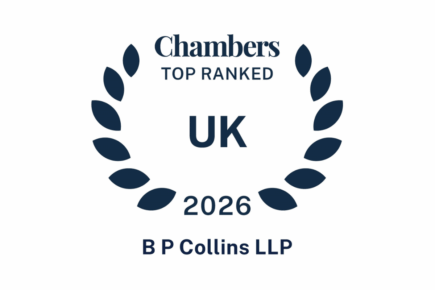Why every family company needs a shareholders’ agreement
When it comes to family run businesses, legal documents like shareholders’ agreements (SHA) can sometimes feel unnecessary. After all, these companies are often built on trust, shared values and longstanding relationships. But while the close knit nature of family enterprises can be a strength, according to B P Collins’ senior associate, Beth Miel and partner, David Smellie, it’s precisely this emotional dynamic that makes clear legal agreements essential.
A shareholders’ agreement is a private document which complements the company’s articles of association (an official public document which includes rules that govern the business and is filed at Companies House) but remains confidential. This privacy is especially valuable in family businesses. For example, provisions relating to specific shareholders, private loan arrangements, or other confidential business information can be detailed in a SHA without public disclosure. Importantly, the SHA acts as a roadmap during both calm and contentious times.
One critical area it can address is share transfers. It allows families to agree in advance who can and cannot own shares. In the case of owner managed businesses or companies where certain classes of shareholders have the right to appoint directors to the board, this would protect the remaining shareholders/directors from having to run a business with outsiders whom they may not wish to be in business with.
Then there’s the issue of death or incapacity. If a key shareholder-director falls ill or dies, what happens to their shares? Do they pass to a spouse or children who may have no business experience? A SHA can stipulate buy-back mechanisms or rules for transferring shares in such events, maintaining business continuity and preventing disruption.
Deadlock is another issue many overlook until it’s too late. Family-run businesses often operate informally, but when disagreements arise that stop the business from moving forward, everyone can suffer. SHAs can include provisions that set out how such deadlocks should be handled, potentially avoiding costly disputes or stalemates.
The agreement also gives clarity around decision-making and minority protections. In a family business where not everyone owns an equal share, it’s crucial to ensure that minority shareholders who would otherwise be outvoted on key decisions have a say. SHAs often list “restricted actions” which are major decisions that require the consent of all or most shareholders. These could include altering the company’s articles of association, fundamental changes to the business, or restrictions on incurring financial liabilities above certain limits.
Another key area is dividends. A SHA can spell out expectations regarding how much of the company’s profits should be paid out to shareholders, how frequently and in what proportions. This avoids surprises and promotes transparency, particularly if not all shareholders are actively involved in the business.
Ultimately, having everything clearly set out in writing from the start helps prevent misunderstandings later. It ensures that all parties are aligned on the business’s key operational and financial matters. For family run businesses—where emotions and history can blur professional boundaries—this clarity is invaluable.
The protection and stability a SHA brings to your business should overcome any feelings of discomfort when raising the idea of having one with your siblings or parents.
If you would like further advice on shareholder agreements or wish to explore other ways to protect and grow your business, please contact one of our corporate and commercial team by emailing enquiries@bpcollins.co.uk, or call 01753 889995.



















